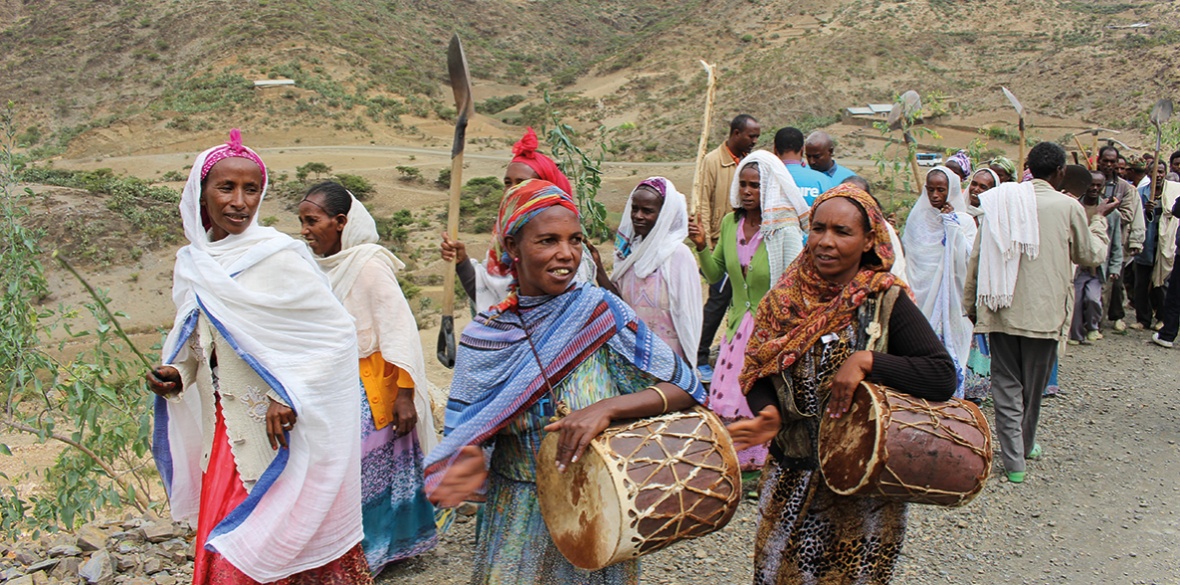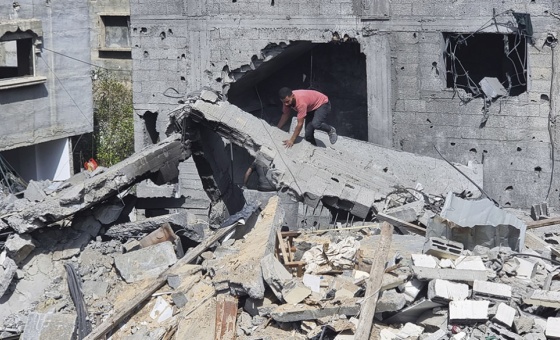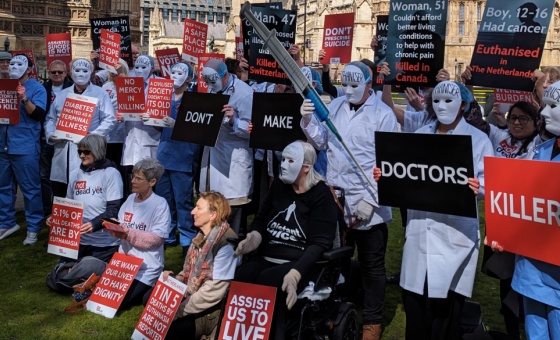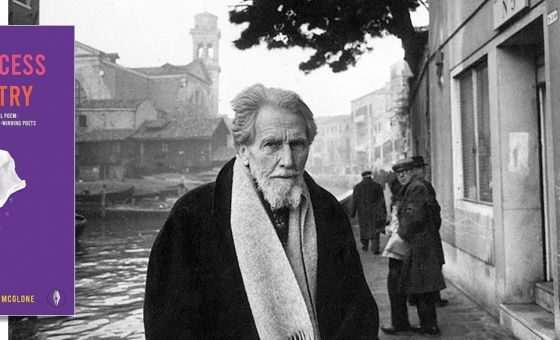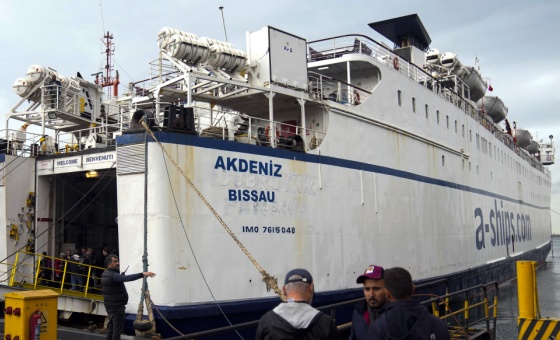This is the last article you can read this month
You can read more article this month
You can read more articles this month
Sorry your limit is up for this month
Reset on:
Please help support the Morning Star by subscribing here
AFTER the relief of finally tracking down a taxi that would take a debit card on a hectic Saturday night near Cardiff railway station, my wife and I got chatting with the driver.
The driver, who was willing to take us back to our hotel by a convenient cash point, originally hailed from Ethiopia and, it turned out, knew our home town of Oxford because he had trained there as a radiologist.
There is so much to unpick from that one sentence.
Ethiopia, of course, is home to the Great Rift Valley, the history of which can be traced back more than 900 million years, and has long been held to be the cradle of human evolution.
But recent new research has cast doubt on this, suggesting that the earliest footsteps of humanity took place at a wetland called Makgadikgadi-Okavango, south of the Great Zambezi River.
What is not in doubt is that Ethiopia, along with Liberia, are the only two African countries to have never been colonised by the predatory European powers and it is recognised as one of the world’s oldest nations.
Formerly known as Abyssinia, the unity of its people as well as its relative geographic isolation and, for much of the time, its economic prosperity, helped the country to win a number of victories against a series of would-be colonialists.
Italy was one of the aggressors seen off in the year-long war from 1895-96. Italy was crushed by the Ethiopians at the battle of Adwa on March 1 1896, and was forced to sign the Treaty of Addis Ababa later that year to formally end the war and recognise Abyssinia as an independent nation.
The Italians did return in 1936 and occupied the country until 1941 but never managed to establish a colonial system.
This occupation forced the country’s emperor Haile Selassie to flee the country to England where he lived for some time in exile in Bath in the south-west.
Selassie never portrayed himself as a god but was considered so by Rastafarians based on a prophecy by Jamaican national hero Marcus Garvey to “look to Africa where a black king shall be crowned, he shall be the Redeemer,” which was swiftly followed by the ascension of Haile Selassie as emperor of Ethiopia.
But talk to many people these days and they will only speak of Ethiopia in terms of its great long-distance runners or the deadly famines or conflicts that have afflicted the country.
From 1983 to 1985 Ethiopia was hit by the worst famine to strike the country in around a century. Estimates say that up to 1.2 million people died as a result of the famine, around 2.5 million internally displaced and another 400,000 were forced to flee the country.
Enormously wealthy musicians made themselves available to persuade the not-so-rich to part with their money by making benefit records or holding huge gigs at places such as Wembley Stadium in London.
All the while politicians, who could have provided long-term help, applauded while they plotted how to get their grubby hands on Ethiopia.
Famine has periodically returned to the country. In mid-2021, the United Nations could not get agreement from the Ethiopian government to declare a famine in the Tigray region. Estimates put the number of people living in famine-like conditions in the area at nearly one million.
Once again the grain stores are empty in the region and a civil war continues to rage but most of the world’s attention is diverted elsewhere, to Gaza, Ukraine and, to a lesser extent, Sudan.
So it’s no wonder that our cab driver felt the need to try to make a better life for himself elsewhere and to train as a health professional abroad.
He told us that when he left Ethiopia he went to Sudan before coming to England and then Wales.
He trained for a period at the John Radcliffe Hospital Trust in Oxford, the place that at various times has saved the lives of my wife, Kate, my mother-in-law and myself.
It turns out that he may well have been at one of the sites of the hospital at the same time my mother-in-law was being treated, so may have been involved in her care.
But now in Wales and like many health workers across Britain, he is struggling to make ends meet as the cost of living soars. Again like many health workers he is forced to take on another job so he can eat and pay the bills before he can think of sending money back to help his family “back home.”
Three points I want to make here.
First, it is never easy to leave your home and to migrate. In fact despite the dishonest rhetoric from the Tories, and seemingly the “loyal” opposition benches, external migration is relatively small as the vast majority of migration is internal to the country where people were born.
The bravery shown by this cabby, and indeed people like my parents who migrated to Britain from Jamaica, to travel thousands of miles to try to make a better life for themselves and their families, is beyond my comprehension.
It was scary enough for me to migrate from Walsall to Manchester to work in the late 1980s.
The second point is that it is unacceptable for health service workers to continue to struggle to survive at the same time as being expected to provide us all with the first-class service that they mostly and miraculously manage to achieve.
The only way out of this must be a commitment by health service unions to agitate for and to deliver a campaign of industrial action to win massive pay rises for all workers in the NHS, whether they work directly or indirectly providing our healthcare.
Someone tried to get me dismissed when I said this when I worked for a health union some years ago but it was as true then as it is now.
Third, we must recognise the debt we owe to healthcare workers leaving their homelands to come and work in the NHS. Without them there would simply be no NHS.
But it also means that health services in their countries of origin lose out too. But our gain is someone else’s loss and much more needs to be done to support health services in developing nations such as Ethiopia.
I think there have been some giant steps forward in support for Ethiopia in recent times that recognise its immense worth on the international scene.
The Chinese gift of the building of the headquarters of the African Union in Addis Ababa recognised Ethiopia’s importance as a global player as did its acceptance this year into the Brics — Brazil, Russia, India, China and South Africa — group of nations.
But it’s far too easy to think of Ethiopia on a macro scale and fail to see the human stories about people simply struggling to get by — as with our cab driver that night.
We wished him well as he dropped us off at our hotel. For us we could, and did, see what the bar had to offer. For him it was likely a long night ahead followed soon after by another lengthy shift at the hospital.

